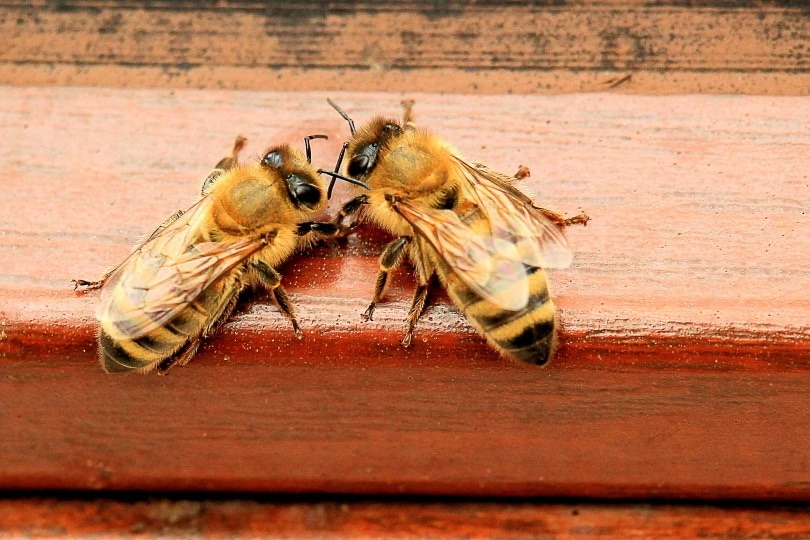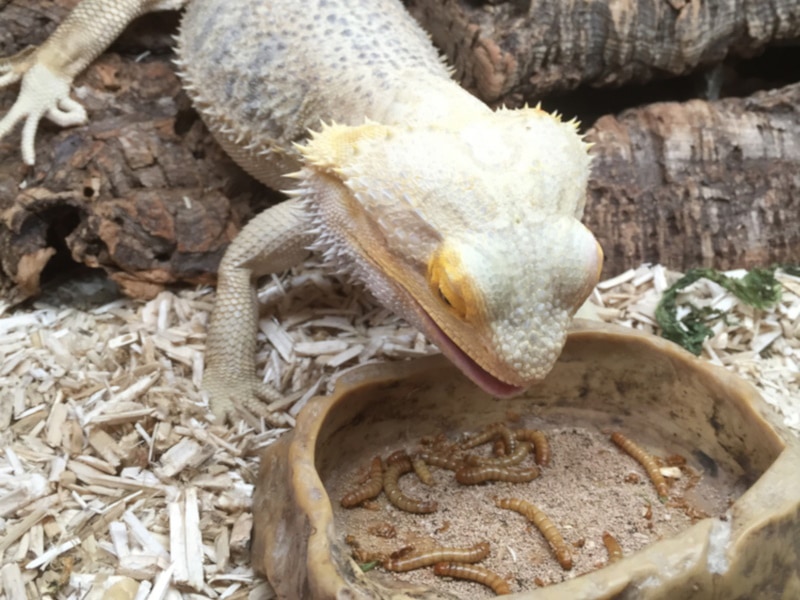Can Bearded Dragons Eat Coconut? Vet Approved Facts & FAQ

Updated on
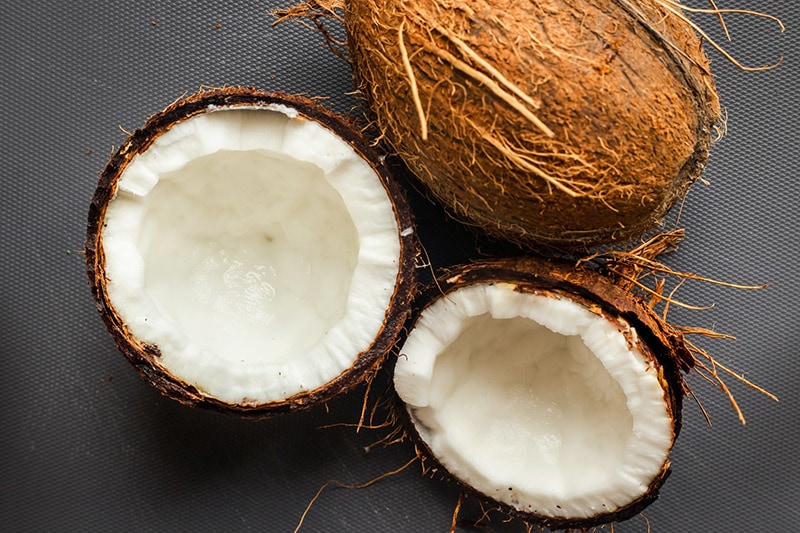
Click to Skip Ahead
Adult Bearded Dragons are omnivores and should ideally eat around 50% plant and 50% animal/insect protein material; these proportions change a lot from young to aged bearded dragons. Since coconuts fall into the plant-based category, you might wonder if coconut is something they can eat. Bearded Dragons can eat coconut, but there are a few factors you need to take into consideration before feeding it to them.
Not only should it be offered in moderation, but the benefits of coconut can also be found in more nutritional sources. So, while your Beardie can eat coconut, it should not make up a substantial part of their diet and should instead be enjoyed as an occasional treat.
The Benefits and Risks of Eating Coconut
First, we recommend speaking to your veterinarian before introducing coconut into your Beardie’s diet, or anything new. They can help you determine the portion sizes or suggest something different if they believe coconut is unsuitable. But if you get the all-clear, there are some things to consider regarding feeding your Beardie coconut.
Coconut can benefit their health and give them a boost of fiber and essential minerals like manganese, iron, and magnesium. The natural sweetness of coconut makes it a fantastic option for a treat your Bearded Dragon will enjoy.
Coconut meat has an inverse calcium to phosphorus ratio and is therefore not good for your Bearded Dragon’s skeletal health. They should have plenty of foods where the calcium content is higher than the phosphorus but in this instance per 100g of coconut there is 14 mg of calcium and calcium 113 mg of phosphorus. Making it a poor choice to feed regularly or in large quantities.
Historically, humans have used coconut meat for medicinal purposes, to ease inflammation, protect against certain diseases, and kill bacteria. However, since it contains a moderate amount of saturated fats, it should only be fed to your lizard in small portions.
Apart from the high-fat content, which could result in your Beardie putting on weight, there are better sources of nutrition. However, that doesn’t mean they can’t enjoy coconut as part of a balanced diet. Ideally, 80% to 90% of the plant material your Bearded Dragon consumes should be leafy vegetables and flowers, with 10% to 20% coming from fruits.
What Should a Bearded Dragon Eat?
Variety is key when it comes to feeding these omnivorous reptiles. The age of your dragon will significantly impact the proportions of protein to vegetable matter that they need to eat each day. Be sure to check the right proportions for the age of your Beardie.
Their daily diet should consist of proteinaceous insects such as a variety of crickets, Dubia roaches, and mealworms. In addition, leafy greens such as turnip greens, collard greens, and mustard greens are important. Maintaining a high calcium-to-phosphorus ratio is important in reptiles to avoid metabolic bone disease so care is needed when planning their diet. Ensure a variety of foods over the week to include as wide a selection of nutrients as possible. Fruit is to be a treat and not a large part of their diet as it can contribute to gum and dental disease if given in excess.
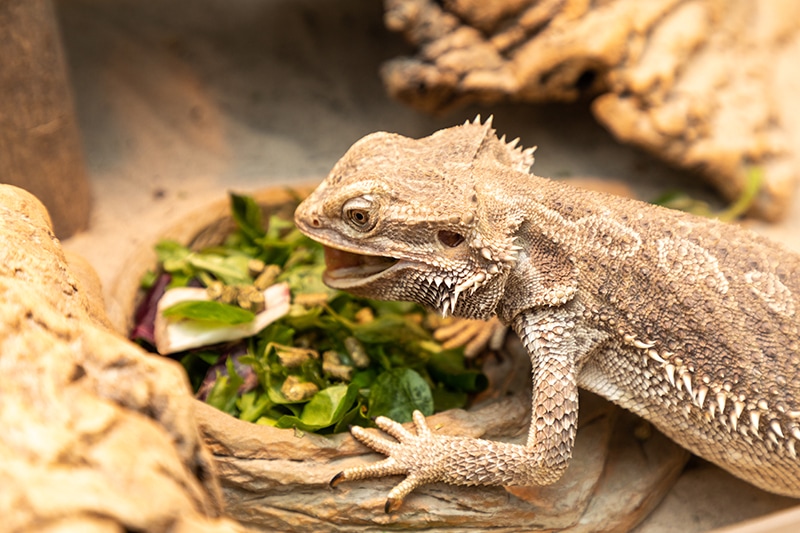
How to Serve Coconut to Your Bearded Dragon
Different forms of coconut are available; some are suitable for your Bearded Dragon, and others, such as sweetened coconut, are not. Shredded coconut is popular because it’s a simple way to keep the portions under control and easy for your Beardie to digest.
Buying unsweetened coconut is best, so you aren’t adding extra sugar to their diet. Give them one or two slices occasionally. If this is their first time trying coconut, give them a smaller amount and watch for signs of digestive problems.
Coconut milk and cream are not recommended for your Bearded Dragon.
What Happens if My Bearded Dragon Eats Too Much Coconut?
You risk your Bearded Dragon’s health if you can’t provide a well-balanced diet, but if you’re ever concerned about their diet, speak to your vet for advice. If your Bearded Dragon eats too much coconut, it could result in the following:
- Digestive problems: Too much fiber can cause digestive problems resulting in constipation or diarrhea.
- Nutrient deficiency: Your Bearded Dragon isn’t going to get the necessary nutrients from coconuts. If they fill up on coconut, they aren’t going to eat their regular food and supplements.
- Weight gain: Excess fat can lead to weight gain if they eat too much coconut. It is essential to monitor your Bearded Dragon’s weight and ensure they eat a healthy diet.
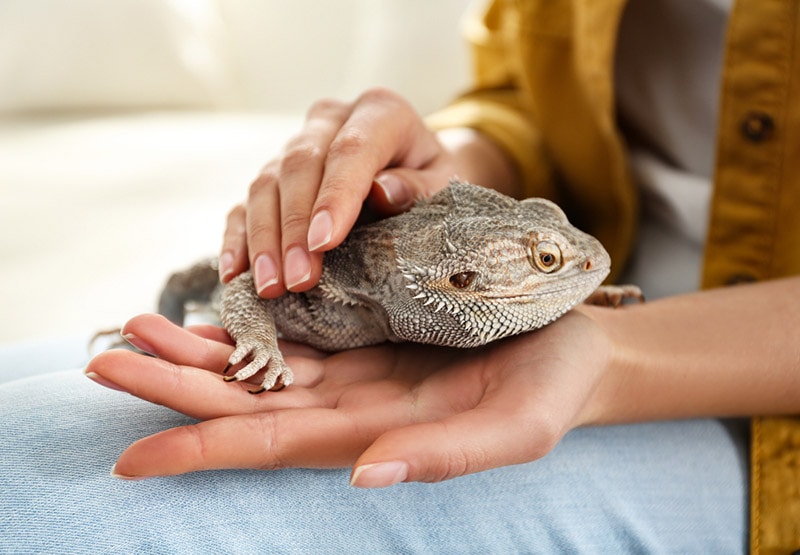
Final Thoughts
Bearded dragons can eat coconut, but only in small amounts and as a treat occasionally. It should not make up a substantial part of their diet since it can cause digestive problems, weight gain, and nutrient deficiency. Coconut can be a healthy addition if you provide small portions to your Beardie. If you’re ever unsure which sweet treats you should feed your Bearded Dragon, your exotic veterinarian is your best resource.
Featured Image Credit: Louis Hansel, Unsplash


